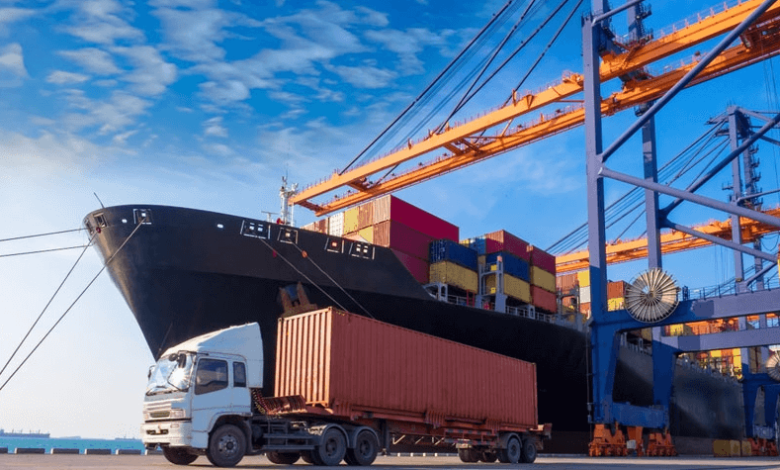Cross Border Shipping HK: Unlocking Seamless Global Trade from Hong Kong

In today’s digitally connected and fast-moving global economy, cross border shipping HK (Hong Kong) has become a vital pillar of international trade. Positioned as a global logistics hub, Hong Kong serves as a gateway between East and West, facilitating smooth and efficient shipment of goods across countries and continents. Businesses, especially eCommerce companies and manufacturers, are increasingly leveraging the city’s strategic advantages to simplify and scale their cross-border logistics operations.
As companies seek to expand beyond domestic markets, understanding how to navigate the nuances of cross border shipping in HK is critical. This article explores what makes Hong Kong ideal for international shipping, how businesses can optimize their supply chains, and the challenges they must be ready to overcome.
Why Hong Kong is a Powerhouse for Cross Border Shipping
1. Strategic Geographical Location
Hong Kong’s location on the southern coast of China places it in close proximity to the Greater Bay Area and Southeast Asia. Within a few hours, goods can reach Shenzhen, Guangzhou, and other major industrial centers in mainland China. Its strategic location also makes it ideal for shipping goods to North America, Europe, and other parts of Asia with minimal delay.
2. World-Class Infrastructure
One of the main reasons cross border shipping HK is preferred globally is its robust transport infrastructure. Its container terminals and sea port are among the top globally in terms of throughput.
3. Free Trade and Low Tariffs
There is also no value-added tax (VAT), making it easier for international companies to store, process, and ship products through the city. This policy promotes competitiveness and cost savings in cross-border trade.
See also: Due Diligence in Brazil: Strategies for Secure Business Operations
The Role of Cross Border Shipping HK in eCommerce
The explosive growth of eCommerce has increased demand for fast, reliable, and scalable cross-border logistics. Businesses that sell on platforms like Amazon, eBay, Shopify, and Lazada depend on cross border shipping HK to reach customers in other countries, especially across Asia-Pacific.
Fulfillment centers and third-party logistics (3PL) providers in Hong Kong offer end-to-end solutions that include warehousing, order picking, packaging, customs clearance, and last-mile delivery. The city’s efficient customs and advanced digital infrastructure ensure minimal delays and reduced error rates.
Common Cross Border Shipping Routes from HK
While Hong Kong ships goods globally, there are several key shipping corridors that dominate the trade landscape:
- Hong Kong to Mainland China (via Shenzhen and Guangzhou): Popular for B2B trade and just-in-time supply chain models.
- Hong Kong to Southeast Asia: Includes Singapore, Malaysia, Vietnam, and Thailand, often used for regional eCommerce.
Key Components of Efficient Cross Border Shipping HK
To execute successful cross-border logistics from Hong Kong, businesses must align several core elements:
1. Customs Documentation and Compliance
Despite Hong Kong’s open trade environment, international shipping still requires detailed documentation. Common documents include:
- Commercial Invoice
- Packing List
- Certificate of Origin
- Airway Bill or Bill of Lading
- Export licenses (if required)
2. Mode of Transportation
- Air Freight: Ideal for time-sensitive goods such as electronics, perishables, and high-value items.
- Sea Freight: More cost-effective for bulk or non-urgent shipments, with both full container load (FCL) and less than container load (LCL) options.
- Cross-border Trucking: Especially useful for routes into mainland China and nearby regions like Macau and Vietnam.
3. Last-Mile Delivery Integration
The customer experience doesn’t end with customs clearance. Businesses must integrate with local couriers or postal services in the destination country cross border shipping hk to ensure fast and trackable final delivery. Many logistics companies in HK offer tech platforms that connect seamlessly with last-mile partners worldwide.
Challenges in Cross Border Shipping from Hong Kong
1. Changing Regulatory Environments
Although Hong Kong enjoys relatively relaxed trade regulations, geopolitical tensions or changing trade policies in partner countries can affect shipping routes, costs, and customs clearance times. Keeping up-to-date with international regulations is essential.
2. Supply Chain Disruptions
Events like pandemics, natural disasters, or labor shortages can disrupt global shipping lanes. Even though Hong Kong has a resilient logistics system, external factors can cause delays, especially in peak seasons like holidays or Chinese New Year.
3. Currency and Payment Issues
Cross-border transactions often involve multiple currencies, which can lead to exchange rate fluctuations. Businesses must also navigate international payment methods and banking regulations when collecting payments from overseas buyers.
Trends Shaping the Future of Cross Border Shipping HK
– Green Logistics Initiatives
With increasing pressure to reduce carbon emissions, logistics providers are turning to electric vehicles, optimized route planning, and eco-friendly packaging. Hong Kong is already adopting smart city technologies to support sustainable logistics.
– Digital Customs Clearance
AI and blockchain are being integrated into customs systems to automate documentation and reduce processing times. Hong Kong is at the forefront of these innovations, making clearance more predictable and efficient.
Conclusion
Cross border shipping HK continues to play a central role in enabling global commerce. Whether you are a growing eCommerce brand or a multinational corporation, leveraging Hong Kong’s strategic advantages can help you reach international markets faster, more efficiently, and more affordably.
From world-class infrastructure and favorable tax policies to experienced logistics partners and digital tools, Hong Kong offers a robust ecosystem for modern cross-border trade. With the right planning, partnerships, and compliance strategies, businesses can turn Hong Kong into their global shipping gateway.





